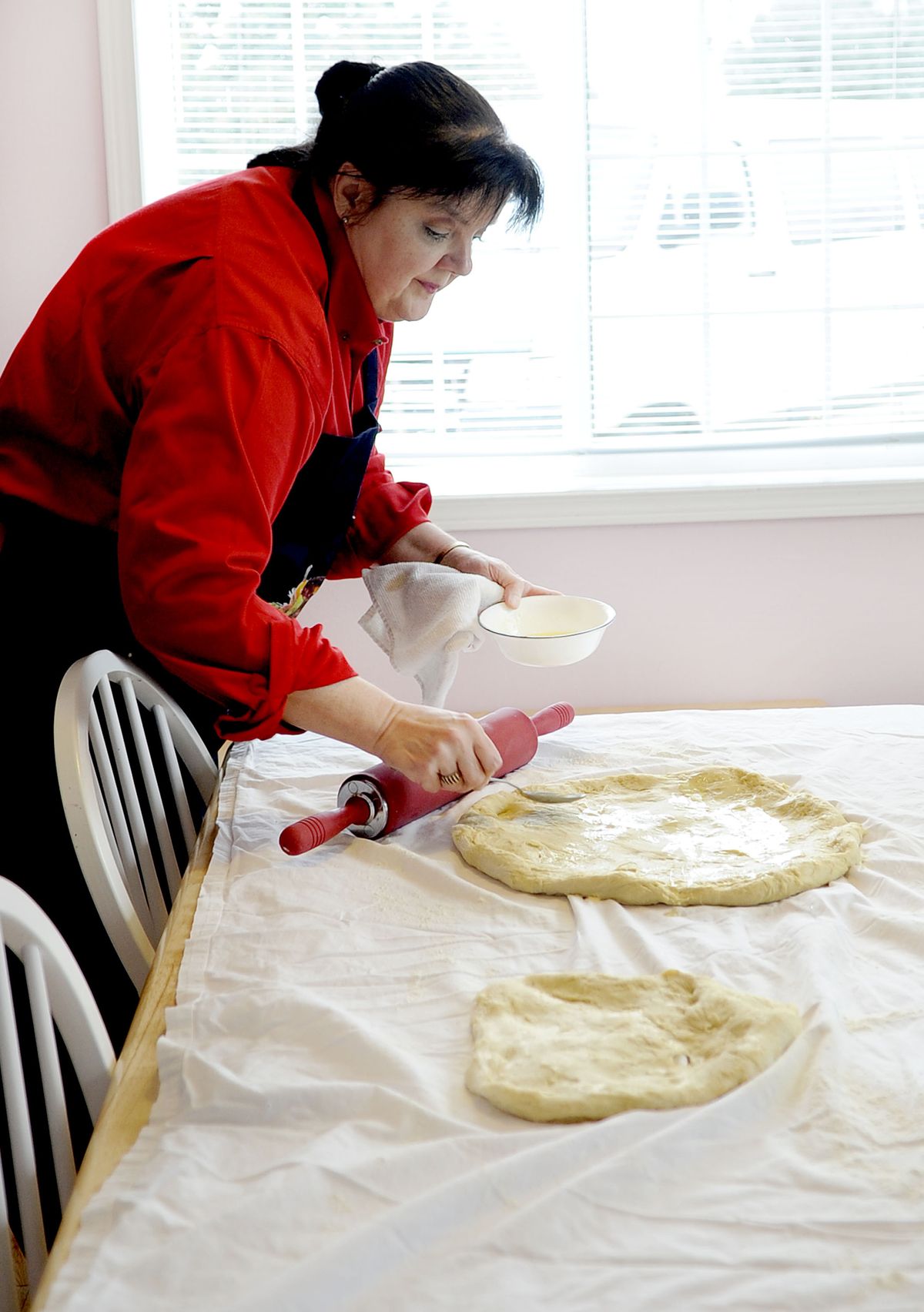Karen Hood’s holiday cookbook packed with tips, recipes, traditions

Karen Jean Matsko Hood has never been to the Old Country.
But she carries on its culinary traditions at Christmas, baking sweet poppy seed rolls and walnut rolls like her mother and aunts, who learned from their mother, an immigrant from Slovenia.
Hood remembers her mother making the rolls for all holidays, weddings and special occasions. These days, Christmas on the family’s Greenacres farm wouldn’t be the same without them.
“I grew up with this, so it’s nostalgia,” Hood said. “It’s comfort food.”
This holiday, the recipes for both rolls can be found in her new “Christmas Delights” cookbook, available through Amazon as well as her publishing company’s website. It’s one in an extensive series of cookbooks that Hood, 60, has been working on for nearly 15 years.
She runs a commercial kitchen on her farm, where her family raises goats, sheep, horses and chickens, and Hood is licensed to sell jams, jellies, syrups and her traditional rolls.
She calls them “poteca.” The traditional Slovenian spelling is “potica,” which can refer to either the walnut- or poppy seed-filled rolls.
“In the Old Country, they picked the walnuts, and they picked the poppy seeds. They did everything by hand,” Hood said. “They ground their poppy seeds by hand. They ground their walnuts by hand. Now we have food processors.”
Walnut and poppy seed fillings are the most traditional, but many other ingredients – hazelnuts, cinnamon, orange peel, raisins, currants, lemon zest, rum, honey, chocolate – are also common in the central and eastern European countries where the sweet rolled yeast bread originates. Variations can be found in the cuisine of Croatia, Poland, Russia, Hungary, Serbia, Slovakia and Czech Republic.
The dough is typically rolled thin, then coated with filling and tightly coiled. The loaves are baked on a baking sheet or, for a more uniform look, in loaf pans.
While the poppy seed loaves are typically log-shaped, like French Bûche de Noël or Yule Logs, Hood usually brings together the ends of the walnut rolls to form circles, like Rosca de Reyes or Three Kings Cake. She also curls the walnut rolls into the shape of oversized cinnamon rolls or, as Hood describes it, snails.
She works the dough on a well-floured, cloth-covered table to prevent the dough from sticking, then coats it with melted butter – “It helps it stretch,” Hood said – before slathering on the filling.
Sometimes, it’s a two-day process, making the filling and dough one day, then rolling and baking the loaves the next.
Always, poteca or potica – whichever way you spell it – is a source of pride.
“My mom and aunts used to compare and say, ‘My poteca’s better than yours,” Hood said.
Warmed up with butter for breakfast or with coffee for dessert or an afternoon treat, the rolls remain a favorite with family members who are two and three generations removed from Eastern Europe.
Hood’s children – 11 of whom are adopted – come from around the world. In all, she and her husband, 62-year-old James G. Hood, a dentist, have 16 between the ages of 13 and 33. Ten remain at home. Three are married.
Sometimes, they invite friends home for the holidays. So there’s typically more than 20 people at the Hood household for Christmas. That translates to at least six batches of dough, yielding a minimum of a dozen walnut and poppy seed rolls per batch.
Those are only two of the hundreds of recipes she’s been collecting and testing since she married in 1975. In 1999, she began compiling them into a series of cookbooks, setting up her publishing company about five years ago.
“Cookbook Delights” features holiday-themed editions for Halloween, Thanksgiving, Christmas, Valentine’s Day, Easter and Mother’s Day as well as volumes centered around certain ingredients: strawberries, huckleberries, raspberries, apples, peaches, chocolate, coconut, rhubarb, onions. There’s even an edition for tea time.
Her walnut roll recipe appears on page 90 of her new Christmas cookbook; the poppy seed roll recipe graces page 102.
“I personally like poppy seed better,” she said.